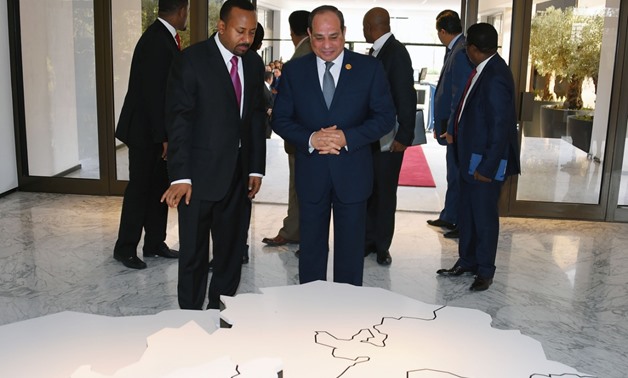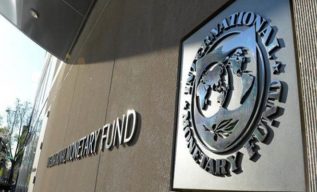Egypt, Sudan and Ethiopia did not reach a unified decision on the techniques of filling the reservoir of the controversial Grand Ethiopian Renaissance Dam (GERD) yet, stated Foreign Minister Sameh Shoukry in an interview with media outlets in Addis Ababa following a tripartite summit between the leaders of the three countries on Sunday.
“The three parties did not reach a unified vision on dealing with filling and operating the reservoir,” Shoukry told Egyptian T.V. hosts Khaled Abu Bakr and Wael el-Ibrashy.
In previous remarks to Egypt Today, Head of the Central Department for Technical Cooperation at the Nile Sector of the Ministry of Water Resources and Irrigation Mamdouh Mohamed Hassan said that the current debate between Egypt and Ethiopia on GERD is a technical one, adding that Ethiopia asked for 5-6 years to fill the dam’s reservoir, while Egypt expressed its desire that Ethiopia abide by the Nile water quantity flow in filling the reservoir to “avoid any significant damage on the downstream countries.”
The foreign minister also said that the tripartite negotiations among the ministers of foreign affairs and water resources of the three countries witnessed an impasse over the past three months.
During the tripartite summit between Egyptian President Abdel Fatah al-Sisi, Sudanese counterpart Omar al- Bashir and Ethiopian Prime Minister Abiy Ahmed in Addis Ababa on the sidelines of the 32nd session of the African Union Summit, it has been agreed to resume the talks in Cairo in February 2019, Shoukry added.
The three leaders stressed their commitment to abide by the Declaration of Principles signed by the countries on March 15, 2015.
Ethiopia started building the dam in May 2011; since then Cairo accused Addis Ababa of constructing the dam “without consultation” in accordance with international accords, while Addis Ababa replied that it is not binding to any international accords.
The deals in question date back to 1929 and 1959 and were during the time of British colonization, where a total of 80 billion cubic meters of Nile water were allocated to Egypt (55.5 billion), and for Sudan (18.5 billion). The agreements also granted Egypt the right to veto against any projects that could be established on Uganda, Kenya, Tanzania and Sudan that may cause harm to its share, leaving out Ethiopia.
Egypt Today














